Urology in Guanacaste
Kidney Stones
Kidney stones are hard deposits of minerals and salts that form inside the kidneys.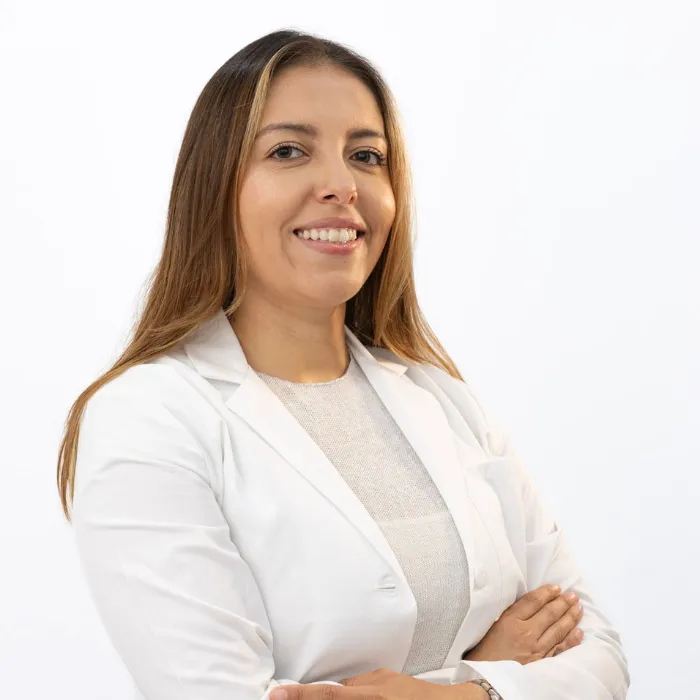
Urology in Guanacaste
Dr. Nathaly Gómez
I am Dr. Nathaly Gómez, a urologist in Guanacaste, and if you have ever had a kidney stone, you know how painful it can be. Today, I want to tell you how I diagnose and treat them so you can return to your normal life without that intense pain.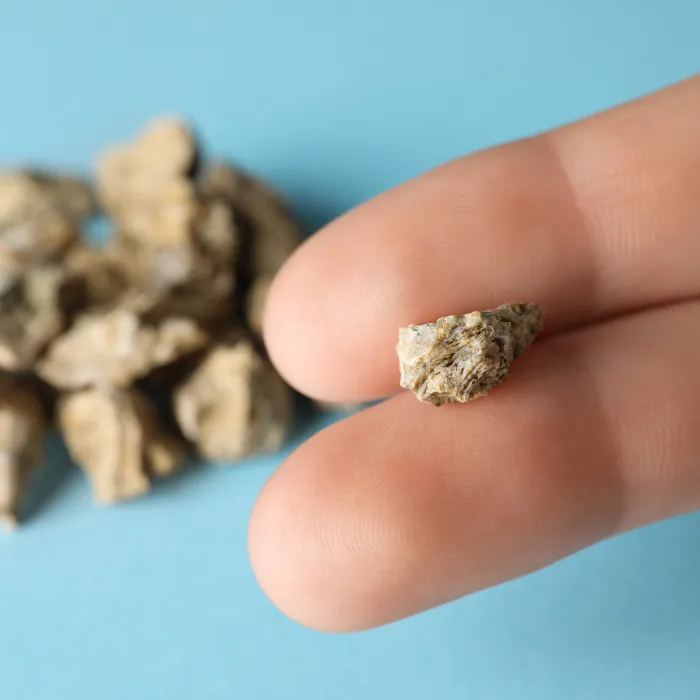
What Are Kidney Stones?
Kidney stones, also known as renal stones, are hard deposits of minerals and salts that form inside the kidneys. They can vary in size, from as small as a grain of sand to large ones that occupy part of the kidney or urinary tract.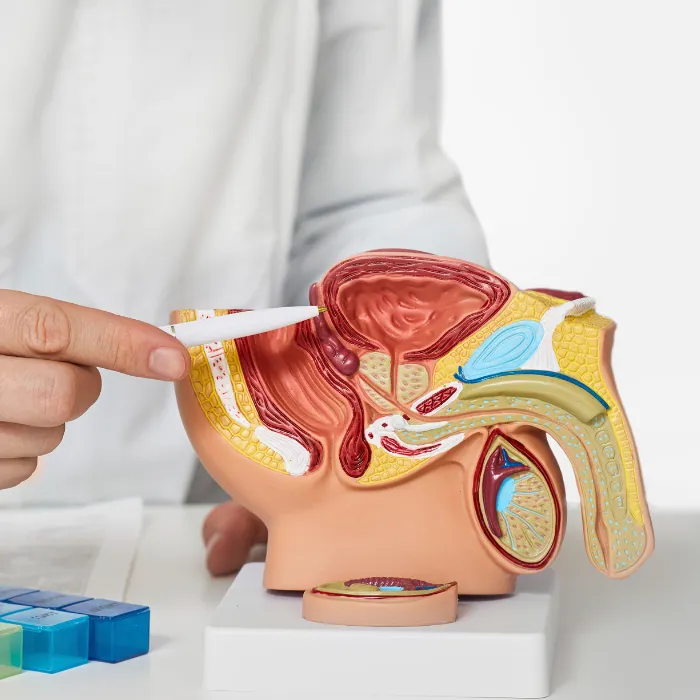
Main Symptoms of Kidney Stones
The most common symptoms include:- Severe pain in the lower back or side
- Pain that radiates toward the groin
- Blood in the urine (see causes of urinary bleeding)
- Cloudy or foul-smelling urine
- Frequent urge to urinate or burning sensation
- Nausea and vomiting
- Fever if an infection is present
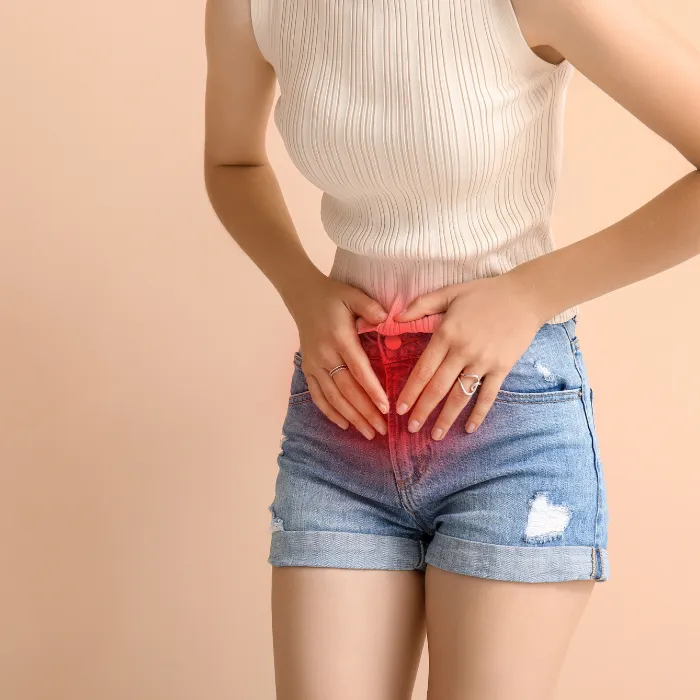
Why Do Kidney Stones Form?
They can develop due to several factors:- Low water intake
- Diet high in salt, animal protein, or sugar
- Family history of kidney stones
- Metabolic diseases such as gout
- Recurrent urinary tract infections (see urinary tract infection treatment)
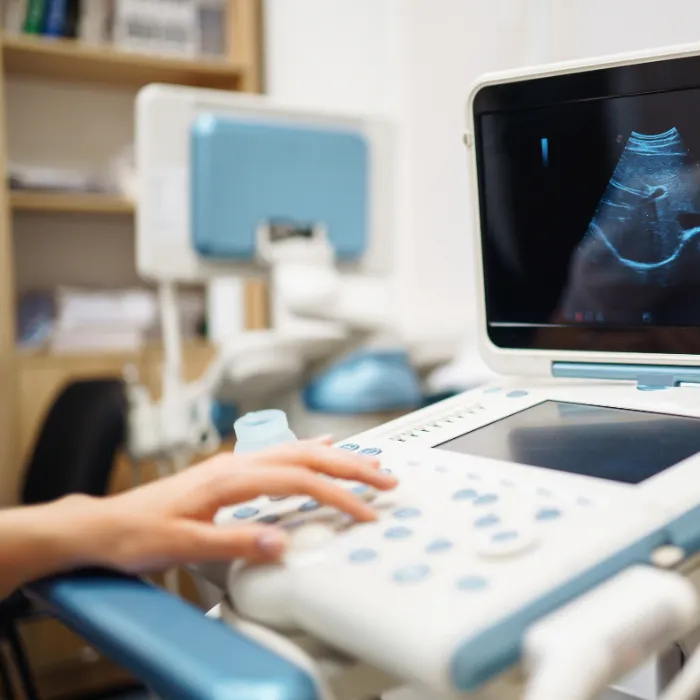
How Do I Diagnose Kidney Stones?
During the consultation, I will perform a physical exam and, depending on your symptoms, may order:- General urine test
- Blood tests to evaluate kidney function
- Kidney and bladder ultrasound
- CT scan in necessary cases

Treatment for Kidney Stones
Treatment depends on the size and symptoms:- Small stones: may pass on their own by drinking plenty of water and using pain medication.
- Medium stones: we can use medications that help make them easier to pass.
- Large or complicated stones: require procedures such as lithotripsy (breaking them with shock waves) or urological surgery to remove them.
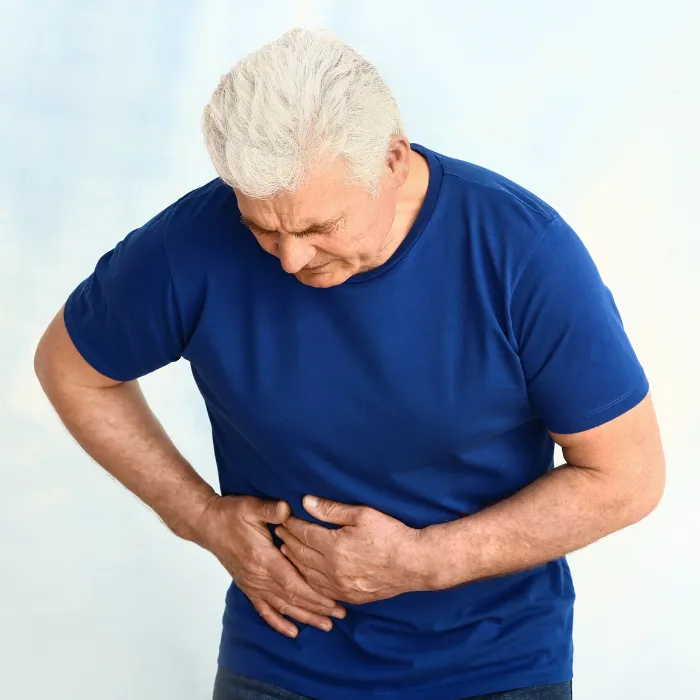
Prevention of Kidney Stones
To prevent them from forming again, I recommend:- Drink at least 2 liters of water a day
- Reduce your intake of salt and red meat
- Avoid sugary drinks and sodas
- Stay physically active
Have questions?
Book your appointment at the clinic that works best for you
Clinics Where I Can See You
You can get an evaluation and treatment for kidney stones at any of my clinics in Guanacaste:- Santa Cruz – Centro Médico Esquipulas
- Jicaral – Especialidades Médicas La Península
- Nicoya – Centro Médico Guanacaste
